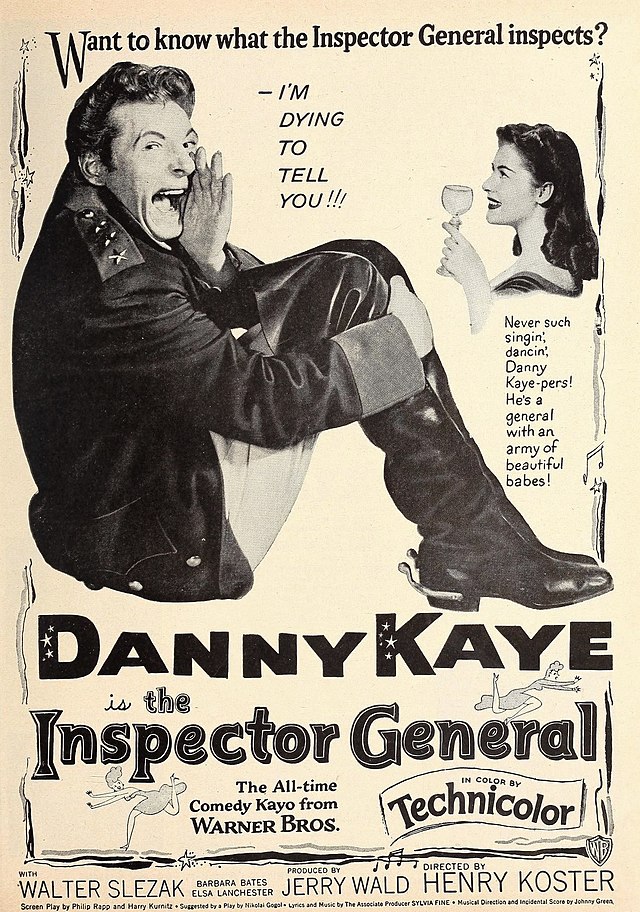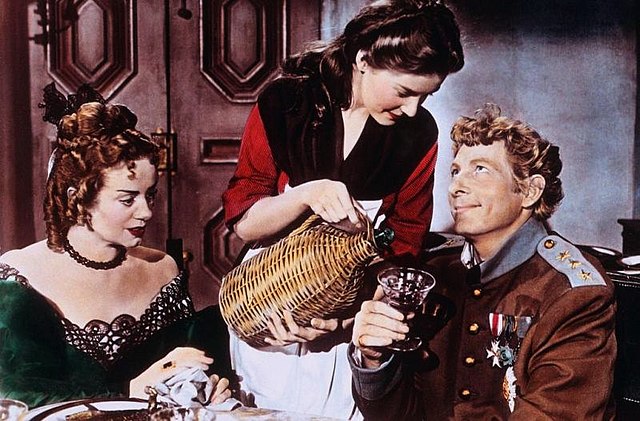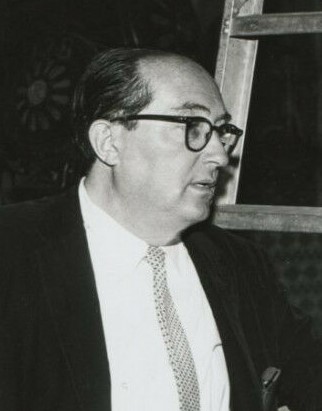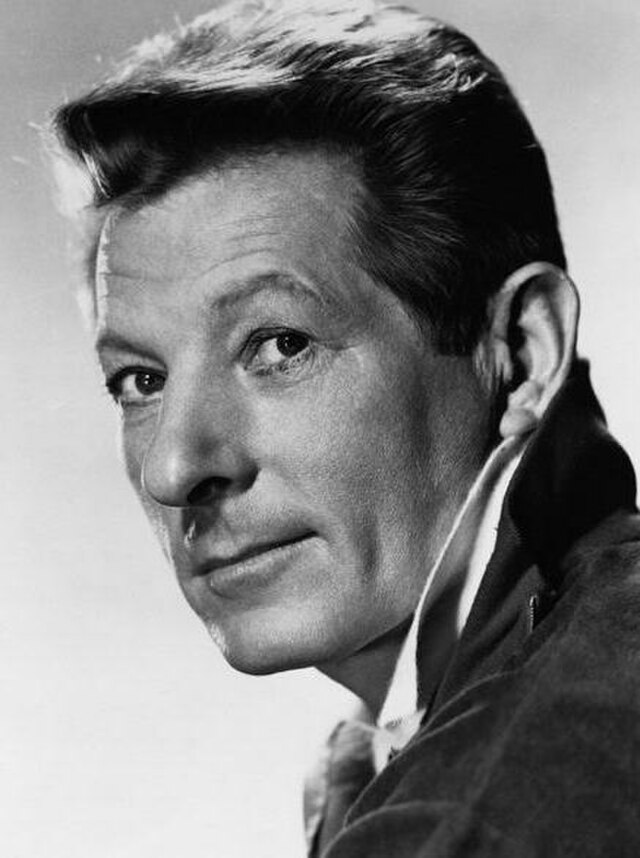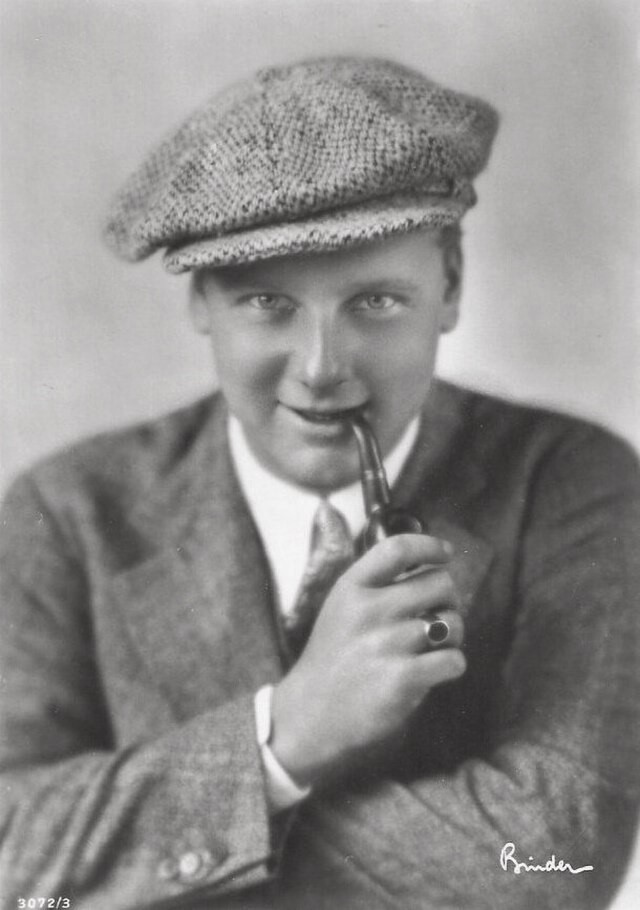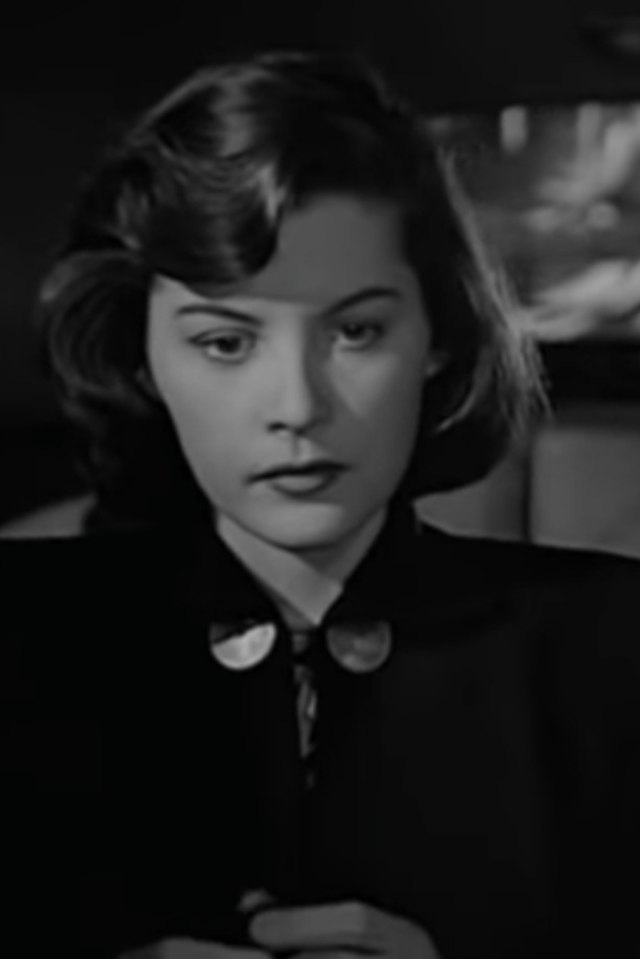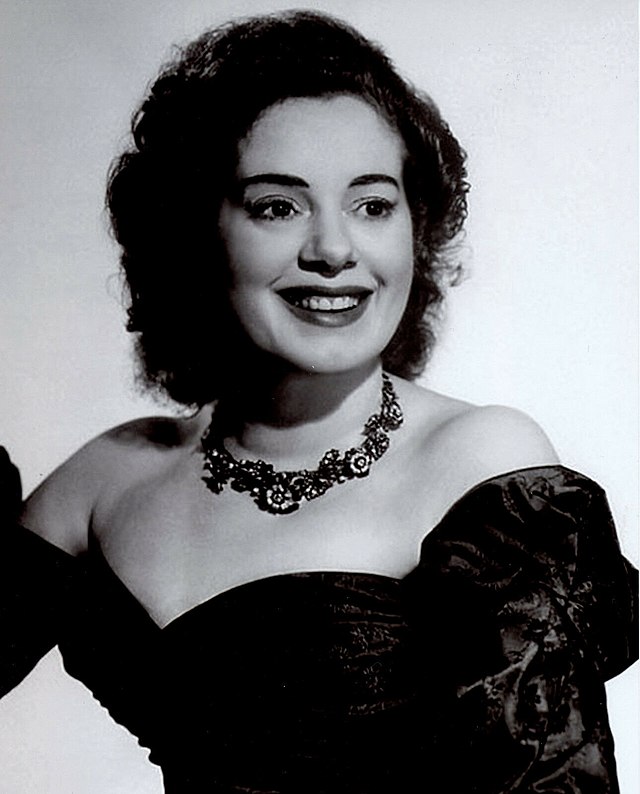The Inspector General - 1949
back| Released by | Warner Bros. |
| Director | Henry Koster |
| Producer | Jerry Wald |
| Script | Written by Philip Rapp and Harry Kurnitz, based on Nikolai Gogol’s play The Government Inspector |
| Cinematography | Elwood Bredell |
| Music by | Sigmund Romberg (songs) and Johnny Green (score) |
| Running time | 102 minutes |
| Film budget | $2 million |
| Box office sales | $2,5 million |
| Main cast | Danny Kaye - Walter Slezak - Barbara Bates - Elsa Lanchester - Gene Lockhart |
The Inspector General
A Lighthearted Musical Comedy where Innocence Triumphs over Corruption
The Inspector General (1949), directed by Henry Koster and starring Danny Kaye, is a musical comedy based on Nikolai Gogol’s play. Kaye’s performance, combining physical comedy, wordplay, and musical talent, drives the film’s humor and charm.
While it didn't receive major awards, the film showcased Kaye’s comedic genius, and its farcical take on corruption and mistaken identity resonated with audiences. Its impact lies in its portrayal of innocence triumphing over corruption and in solidifying Danny Kaye's place as one of Hollywood's premier entertainers of the era.
Related
The Inspector General – 1949
Plot Summary:
The Inspector General is a lively, comedic tale set in a fictional Eastern European village in the 19th century. The story follows the adventures of Georgi (played by Danny Kaye), an illiterate and somewhat naive wandering performer who works for a corrupt and self-serving snake oil salesman, Yakov (Walter Slezak). Yakov's sales tactics get them in trouble, leading them to flee the towns they visit after their fraudulent remedies are exposed.
While fleeing from their most recent misadventure, Georgi stumbles into a small village whose officials are deeply corrupt. The mayor, Leza (Gene Lockhart), and his cronies have been exploiting the town’s resources for personal gain, with no fear of consequences—until word arrives that the Czar has sent an inspector general incognito to investigate the town. In a twist of fate and misunderstanding, the simple-minded Georgi is mistaken for the feared Inspector General. Believing that Georgi has the power to uncover and expose their wrongdoings, the town's corrupt officials panic and scramble to hide their crimes.
Georgi, entirely unaware of the situation, is treated like royalty by the town’s leadership, who shower him with gifts and hospitality in hopes of avoiding his supposed wrath. As Georgi enjoys the luxury and attention, he begins to develop feelings for Leza (Barbara Bates), a kind and good-hearted woman who works in the mayor's household and who shows him genuine kindness.
Meanwhile, the town’s officials plot to assassinate Georgi, fearing that bribery and flattery might not be enough to ensure their safety. However, their plans are repeatedly foiled in a series of comedic mishaps. Georgi’s good-natured but bumbling behavior somehow keeps him one step ahead of danger without him even realizing it.
In the climax, the real Inspector General (Rhys Williams) arrives, and the truth is revealed. Instead of punishment, Georgi’s pure heart and accidental heroism lead to the exposure of the officials’ corruption. Georgi is ultimately hailed as a hero by the townspeople, and the crooked officials are arrested. Georgi, now wiser and more confident, embraces his new role as a leader and sets off to begin a new chapter in his life, perhaps with a future alongside Leza.
Analysis:
Themes: The Inspector General is a story that highlights several key themes:
- Corruption and Hypocrisy: The town’s leaders, including the mayor and his cohorts, represent the corrupt nature of unchecked power. They misuse their positions for personal gain, assuming that they are beyond the law. The arrival of the “inspector general” forces them to confront their actions, although their first instinct is to hide and bribe rather than reform.
- Mistaken Identity: The mistaken identity of Georgi as the inspector general drives the entire plot. It plays on the classic comedic trope of a character being in over their head without realizing it, creating moments of both humor and tension. The town’s elites project their own fears and insecurities onto Georgi, believing him to be far more dangerous and powerful than he truly is.
- Innocence and Goodness: Georgi represents a form of innocence and good-heartedness that stands in stark contrast to the corruption around him. Though uneducated and initially self-doubting, his kindness and decency allow him to inadvertently triumph over the schemes of the town’s leadership. His journey is one of self-discovery, as he grows from a timid, directionless wanderer into someone who embraces his role as a hero, even if by accident.
Character Development:
- Georgi is the heart of the film, and Danny Kaye’s portrayal of him brings a charming mix of humor and vulnerability. Georgi’s journey from a hapless fool to an accidental hero is filled with comedic set-pieces, including Kaye’s signature musical performances. As Georgi begins to realize his own worth, the audience watches him grow more confident. His character reflects a classic "everyman" who, despite lacking sophistication or education, possesses a pure moral compass.
- The Mayor and his cronies are depicted as buffoonish and inept, their corruption played for laughs rather than serious drama. Their constant scheming to stay in power only deepens their downfall when the real inspector general arrives, cementing their role as the antagonists whose comeuppance is inevitable.
- Leza, the mayor’s maid, represents the moral counterpoint to the corrupt leadership of the town. Her kindness towards Georgi shows her inner goodness, and her character stands as a symbol of the “ordinary” people who suffer under corrupt rule. She provides Georgi with a romantic interest and serves as the emotional core of the film’s more heartfelt moments.
Humor: The film’s humor relies on a mix of slapstick, wordplay, and situational comedy. Danny Kaye’s physical comedy and timing are on full display, particularly in scenes where Georgi is trying to navigate the world of high society without any understanding of what is really going on. The misunderstandings between the corrupt officials and Georgi provide continuous laughs, as each character believes they are manipulating the situation, unaware of the others' confusion.
Musical Elements: Music plays an essential role in the film, with several musical numbers highlighting Danny Kaye’s versatility as a performer. The songs, composed by Sigmund Romberg and accompanied by Johnny Green's score, add to the film's comedic and whimsical atmosphere. Kaye’s ability to blend physical comedy with musical performance is one of the movie’s main attractions.
Cinematic Style: Henry Koster’s direction emphasizes the film’s light, whimsical tone. The village is portrayed as a colorful, lively place, albeit riddled with corruption. The use of elaborate set designs and costumes captures the aesthetic of a period far removed from the modern world, which adds to the fairy tale-like quality of the story.
Conclusion:
The Inspector General is a delightful and classic example of mid-20th century Hollywood comedy. It showcases Danny Kaye’s talents as a multi-faceted entertainer, combining humor, music, and a morality tale about the dangers of corruption and the power of goodness. The film doesn't dive deep into the political nuances of Nikolai Gogol’s original work, opting instead for a more lighthearted and comedic approach, which was well-suited to Kaye's strengths as a performer.
Though not a profound work of cinema, The Inspector General remains a charming and entertaining film that continues to be appreciated for its humor, music, and heartwarming story. Its message, that innocence and kindness can triumph over corruption and greed, gives the film a timeless appeal.
Classic Trailer of The Inspector General
Full Cast
· Danny Kaye as Georgi
· Walter Slezak as Yakov
· Barbara Bates as Leza
· Gene Lockhart as The Mayor
· Elsa Lanchester as Maria, The Mayor's Wife
· Alan Hale as Kovatch
· Rhys Williams as The Real Inspector General
· Walter Catlett as Colonel
· George Coulouris as Head of the Secret Police
· Nestor Paiva as Captain
· Ludwig Donath as Schoolmaster
· Byron Foulger as Magistrate
· Frank Pulaski as Woodchopper
· Benny Baker as Minor Role (uncredited)
· Jim Bannon as Guard (uncredited)
· Ellen Corby as Townswoman (uncredited)
· Harry Cording as Townsman (uncredited)
· William "Bill" Phillips as Innkeeper (uncredited)
Analysis of Henry Koster’s Directing Style
Henry Koster’s direction of The Inspector General (1949) reflects his deft touch with lighthearted, character-driven comedies, as well as his experience in crafting films that balance humor with sentimentality. Koster was known for his ability to direct family-friendly movies with broad appeal, and his work on The Inspector General is no exception. His direction manages to bring out the film’s blend of farcical comedy, musical interludes, and a moral message while making the story accessible and entertaining to a wide audience.
Tone and Pacing:
Koster’s direction establishes a playful, whimsical tone that carries throughout the film. He embraces the absurdity of the situation—an illiterate wanderer being mistaken for a powerful government official—and ensures that the comedy is never too harsh or cynical. The humor, though rooted in themes of corruption and mistaken identity, remains lighthearted and situational, driven by the characters’ misunderstandings and physical comedy.
The pacing of the film is brisk, with Koster ensuring that the plot’s energy remains high. The fast-paced dialogue, slapstick humor, and musical numbers are all carefully timed to maintain the film's comedic momentum. Koster avoids any lulls in the action, propelling the narrative forward with a series of escalating misunderstandings and comic set-pieces, ensuring that the audience is consistently entertained.
Character Focus:
Koster’s direction places a strong emphasis on character development, particularly in the case of Georgi, the film’s protagonist played by Danny Kaye. Under Koster’s guidance, Kaye’s Georgi transforms from a meek, bumbling fool to an accidental hero, without losing his inherent innocence and charm. Koster allows Kaye the freedom to showcase his wide range of comedic talents, including physical comedy, improvisational humor, and musical performance.
The supporting cast is also well-utilized. Each character, from the corrupt mayor to the conniving officials, is distinct and exaggerated in a way that enhances the film’s comedic tone. Koster effectively directs the ensemble in such a way that their interactions, misunderstandings, and schemes drive the humor without feeling forced. His focus on character dynamics helps to amplify the comedic elements, as each interaction between the townspeople and Georgi adds to the escalating confusion.
Use of Comedy:
Koster had a strong background in comedic films, and his handling of the humor in The Inspector General demonstrates his expertise. The film relies heavily on mistaken identity, a classic trope in comedy, and Koster plays it for maximum effect. Georgi’s obliviousness to his surroundings and the town officials' constant fear of being exposed create a continuous string of comedic misunderstandings.
Koster also employs physical comedy, particularly through Danny Kaye, who is known for his mastery of slapstick. Scenes where Georgi fumbles his way through the luxuries and responsibilities of being treated as an important figure are directed with an eye for comedic timing. Koster makes use of Kaye’s body language, facial expressions, and nervous energy to bring out the full humor of Georgi’s predicament.
Additionally, satirical humor is subtly present, as the film takes jabs at corrupt political figures who, despite their incompetence and greed, remain in power until the arrival of an outsider. Though the satire is not biting, it adds another layer to the comedy, giving the audience a moral center within the film’s lightheartedness.
Musical Direction:
A key element of The Inspector General is its use of musical numbers, and Koster’s direction integrates these performances seamlessly into the narrative. The songs, composed by Sigmund Romberg and accompanied by Johnny Green’s score, are not just breaks from the action but are woven into the fabric of the story. Koster ensures that the musical numbers reflect Georgi’s character and enhance the overall mood of the film.
For example, the song and dance numbers, particularly those performed by Danny Kaye, are full of lively energy and humor. Koster directs these sequences with a sense of rhythm, allowing Kaye to shine in performances that combine music, comedy, and storytelling. Rather than being jarring interruptions, the musical elements contribute to the film’s sense of fun and spectacle, further showcasing Koster’s ability to balance multiple genres.
Visual Style:
Koster’s visual direction in The Inspector General is vibrant and well-suited to the film’s comedic tone. The village, with its colorful costumes and elaborate sets, is presented as an exaggerated, almost fairy tale-like world where the absurd events of the plot can unfold. Koster creates a visually dynamic environment that complements the light, comedic atmosphere of the story.
Though Koster doesn’t rely on heavy-handed visual flourishes, he does employ clever staging to enhance the comedic misunderstandings that drive the plot. For instance, scenes where Georgi is mistaken for the inspector general are often framed in ways that highlight the absurdity of the situation—close-ups of anxious, sweating officials, or wide shots that emphasize Georgi’s out-of-place demeanor in the opulent settings. The visual style reinforces the film’s farcical nature, enhancing the comedy without detracting from the performances.
Moral Undertones:
While primarily a comedy, The Inspector General also carries a moral message about the triumph of innocence and goodness over corruption. Koster’s direction underscores this theme without making it too overt or preachy. Georgi’s rise from a poor, uneducated man to a town hero is a reflection of the idea that integrity and kindness, even when unintended, can expose and defeat greed and immorality. Koster allows this message to emerge naturally through the comedy and character arcs, particularly in Georgi’s interactions with the townspeople.
Conclusion:
Henry Koster’s direction of The Inspector General strikes a fine balance between broad slapstick humor, musical entertainment, and a subtle moral lesson. His work on the film showcases his talent for comedic timing, character-driven storytelling, and incorporating music into the narrative without disrupting the flow of the plot. Under Koster’s direction, Danny Kaye’s performance shines, and the ensemble cast supports the farcical tone of the movie.
Koster ensures that The Inspector General remains a lively, enjoyable film that appeals to both adults and children. His direction embraces the absurdity of the plot while maintaining a warm, feel-good atmosphere. Ultimately, Koster’s ability to blend humor, music, and a lighthearted critique of corruption creates a charming film that continues to entertain audiences.
Masterclass in Comedic Acting from Danny Kaye
Danny Kaye's performance in The Inspector General (1949) is a masterclass in comedic acting, showcasing his unique blend of physical comedy, musical talent, and heartfelt charm. In the role of Georgi, Kaye embodies the classic "fish out of water" character, a simple, well-meaning man thrust into a world of mistaken identity and intrigue. Kaye’s portrayal of Georgi drives the entire film, and his versatility as an actor elevates the material, making it memorable and engaging.
Physical Comedy and Slapstick:
One of the hallmarks of Danny Kaye’s performance is his exceptional use of physical comedy. Kaye was known for his elastic expressions, quick movements, and ability to convey a wide range of emotions through his body language, and The Inspector General is no exception. Whether he’s bumbling his way through the lavish settings of the town or awkwardly attempting to fit into a world of sophistication, Kaye’s physicality is a constant source of humor.
In several scenes, Kaye’s ability to use his whole body to generate laughs is on full display. For example, when Georgi is mistaken for the inspector general and is treated with extreme deference by the town officials, Kaye plays the role with exaggerated nervousness. His wide-eyed expressions and frantic movements as he tries to comprehend his sudden elevation in status add to the film’s comedic tone. Kaye’s slapstick moments—such as tripping over furniture or accidentally avoiding traps set by the corrupt town leaders—are expertly timed and executed, contributing to the film's lively pace.
Verbal Comedy and Wordplay:
While his physical performance is brilliant, Kaye also shines in his delivery of dialogue. His comedic timing is impeccable, particularly when delivering fast-paced, nervous monologues or interacting with the film’s other characters. Kaye’s ability to balance rapid-fire lines with moments of genuine emotion makes his character both endearing and funny.
One standout aspect of Kaye’s verbal performance is his use of wordplay and nonsensical humor, often incorporated into his musical numbers. Kaye had a gift for playing with language, and this talent is on full display during the film’s comedic musical sequences, where he uses tongue-twisting lyrics, rapid-fire patter, and playful intonations to make the songs both amusing and impressive. His natural rhythm in delivering complicated wordplay is a highlight of the film, and it demonstrates his versatility as a performer.
Musical Performance:
Kaye’s musical talent is another key element of his performance in The Inspector General. Throughout the film, Kaye breaks into song, often using music as a means to express Georgi’s inner feelings or to navigate a difficult situation. These musical moments are more than just interludes—they are extensions of his character, providing insight into Georgi’s personality while also showcasing Kaye’s unique talent for blending song with comedy.
One of the most memorable scenes is Kaye’s performance of the “Gypsy Drinking Song,” where he simultaneously sings, dances, and acts out a story about drunkenness and foolishness. His ability to move seamlessly between physical comedy and musical performance without missing a beat highlights Kaye’s extraordinary skills as an entertainer. The way he injects humor into his songs—whether through facial expressions, exaggerated gestures, or playful vocalizations—adds an extra layer of entertainment to the film, and it’s these musical numbers that often steal the show.
Characterization and Emotional Range:
Beneath the comedic antics, Kaye infuses Georgi with a great deal of heart and vulnerability. Georgi is a character who begins the film as a somewhat hapless and insecure figure. He’s a wandering performer, often at the mercy of his boss Yakov, and lacks confidence in himself. Kaye captures Georgi’s initial naivety and insecurity, portraying him as a man who is unsure of his place in the world but still has an innate goodness and desire to do the right thing.
As the film progresses and Georgi is mistaken for the inspector general, Kaye subtly shifts the character’s emotional arc. Georgi gradually gains confidence, particularly after he begins to receive kindness from Leza (Barbara Bates) and realizes that he can make a difference in the lives of the townspeople. Kaye portrays this growth with nuance, allowing Georgi’s moments of self-doubt to slowly transform into moments of empowerment. Even though Georgi never truly becomes aware of the full scope of the town’s corruption, he instinctively chooses to do the right thing, and Kaye’s performance conveys this journey with sincerity.
Balancing Comedy and Heart:
What sets Danny Kaye apart from many comedic actors of his time is his ability to balance outrageous comedy with genuine emotion, and this is evident in The Inspector General. While the film is full of laugh-out-loud moments and slapstick humor, Kaye also brings a sense of heartfelt sincerity to the role of Georgi. This balance between comedy and emotion is what makes his performance so compelling.
Kaye doesn’t simply play Georgi for laughs; he brings depth to the character, making him sympathetic and relatable. The audience roots for Georgi not just because he’s funny, but because Kaye portrays him as someone who, despite his insecurities and misunderstandings, has a kind heart and a desire to do good. This emotional resonance is particularly important in the film’s later scenes, where Georgi is forced to confront the corruption around him and take on a more heroic role, even if inadvertently.
Chemistry with the Cast:
Kaye’s interactions with the other cast members are another highlight of his performance. His dynamic with Walter Slezak (Yakov), his scheming and manipulative boss, is especially enjoyable. Kaye plays the role of the loyal but nervous subordinate perfectly, creating moments of humor as Georgi tries to please Yakov while also yearning for something more. Their contrasting personalities—Yakov’s cynicism versus Georgi’s innocence—add a comedic tension that enhances both characters.
Kaye also shares a warm chemistry with Barbara Bates, who plays Leza, Georgi’s love interest. While the romance is more of a subplot, Kaye’s ability to portray genuine affection towards Leza adds a tender element to the film. His scenes with Bates are more understated, showcasing his ability to shift from manic comedy to softer, more heartfelt moments.
Versatility and Range:
Ultimately, Danny Kaye’s performance in The Inspector General demonstrates his incredible versatility as a performer. He moves effortlessly between physical comedy, verbal wit, and musical performance, all while grounding the character of Georgi in a sense of reality. Kaye is never simply a clown—he’s a deeply talented actor who brings layers to his performance, allowing the audience to laugh at his antics while also empathizing with his character’s journey.
Conclusion:
Danny Kaye’s portrayal of Georgi in The Inspector General is a tour-de-force performance that highlights his unique talent as a comedic actor and entertainer. His ability to blend physical humor, verbal wit, musical prowess, and heartfelt sincerity makes Georgi a memorable and endearing character. Kaye’s performance elevates the film beyond a simple farce, infusing it with charm, warmth, and timeless humor. He is the heart of the movie, and his presence on screen is magnetic, leaving a lasting impression on the audience.
Memorable Quotes from The Inspector General
Georgi (Danny Kaye):
- "I don’t mind being shot, but I really hate being hanged!"
This line captures Georgi’s comedic fear and confusion when he realizes he's in a dangerous situation. It’s emblematic of his innocent, bumbling nature.
- "It's a pity people don't realize the real value of a good two-for-one snake oil deal."
Georgi, still under the influence of his boss Yakov's salesmanship, tries to rationalize their fraudulent business. This line reflects his naïveté early in the film.
- "I’m not the Inspector General, I’m just a gypsy!"
Said in a moment of panic when Georgi is overwhelmed by the mistaken identity situation. This line highlights the absurdity of the film’s central plot.
Yakov (Walter Slezak):
- "A good fraud is just like art—it requires talent, skill, and timing."
This line exemplifies Yakov’s cynical worldview and his role as the manipulative and scheming counterpart to Georgi.
The Mayor (Gene Lockhart):
- "Kill him! Bribe him! No, no, we’ll have to kill him. Bribery is too risky."
The Mayor’s indecisiveness about how to handle the "Inspector General" reflects his cowardly and corrupt nature, showing how far he’s willing to go to protect his power.
Georgi (during a musical number):
- "If I were rich, what would I do? I’d laugh and sing the whole day through!"
This lyric from one of Georgi’s musical numbers expresses his simple desires and dreams, highlighting his humble and good-natured personality.
Maria (Elsa Lanchester), The Mayor’s Wife:
- "The Inspector General sees everything! We must be careful of even our smallest sins."
This line reflects the paranoia and fear of the town officials as they scramble to cover their tracks, mistaking Georgi for the powerful Inspector General.
The Real Inspector General (Rhys Williams):
- "An honest man is the most dangerous of all."
This line is delivered by the real inspector general at the end of the film, commenting on how someone like Georgi, with his honesty and innocence, is capable of exposing the town’s deep corruption.
Classic Scenes from The Inspector General
The Gypsy Drinking Song:
One of the most iconic scenes in the film is when Georgi, trying to charm the townspeople, performs the lively and comedic “Gypsy Drinking Song.” This sequence showcases Danny Kaye’s extraordinary ability to combine music, humor, and physical performance. As Georgi, Kaye sings and dances his way through a tale of drunkenness, using his expressive face and body language to amplify the humor. The scene is a whirlwind of energy, filled with Kaye’s signature rapid-fire lyrics and exaggerated movements, and it is one of the most memorable musical moments of the film.
- Why it stands out: This scene highlights Kaye’s unmatched versatility as a performer, blending music, dance, and physical comedy. His ability to move seamlessly between singing and acting while maintaining comedic timing is a testament to his talent.
The Bribery Banquet:
In this hilarious scene, the town’s corrupt officials try to bribe Georgi, whom they still believe to be the Inspector General, by hosting a lavish banquet in his honor. Georgi, completely unaware of what is happening, enjoys the grand meal, growing more and more confused by the excessive praise and gifts. The officials, on the other hand, become increasingly desperate to win Georgi’s favor, leading to a series of awkward and comedic exchanges.
- Why it stands out: The comedy in this scene stems from the escalating misunderstandings. Kaye’s portrayal of Georgi as a clueless but likable man, enjoying the attention without realizing the weight of the situation, is classic farce. His physical reactions, especially as the banquet becomes more absurd, add to the humor.
Georgi’s Inspection Tour:
In this scene, Georgi is taken on a tour of the town as part of his supposed duties as the Inspector General. The town officials nervously point out various buildings and facilities, trying to hide their corruption while pretending that everything is in order. Georgi, still unaware of his mistaken identity, innocently comments on the tour, causing panic among the officials who interpret his every word as a subtle threat.
- Why it stands out: This scene is a great example of how the film uses mistaken identity to drive the comedy. Georgi’s naïve observations are misinterpreted as sharp, critical assessments, which leads to frantic efforts by the town officials to cover up their misdeeds. Kaye’s performance as the oblivious Georgi keeps the humor light and fast-paced.
The Assassination Attempt:
One of the film’s funniest moments comes when the town officials, afraid that Georgi will expose their corruption, decide to assassinate him. In this scene, they attempt to poison Georgi during a meal. However, through a series of comedic mishaps, Georgi inadvertently avoids the poisoned food, much to the increasing frustration of the would-be assassins. At one point, Georgi unknowingly swaps plates with the mayor, resulting in even more chaos.
- Why it stands out: This scene exemplifies the slapstick humor for which Danny Kaye was known. His obliviousness to the danger around him, combined with the escalating tension among the corrupt officials, creates a classic moment of farcical comedy. The physical gags, particularly the swapping of food, are expertly timed.
The Reveal of the Real Inspector General:
The climactic moment of the film occurs when the real Inspector General finally arrives in the village, and the town officials realize their enormous mistake. Georgi, still unaware of what’s happening, is thrown into complete confusion as the truth is revealed. The corrupt officials scramble to adjust their plans, but it’s too late—their corruption is exposed, and they are arrested.
- Why it stands out: This scene brings the film’s central theme of mistaken identity to its peak. The comedic payoff is satisfying as the truth is finally uncovered. Kaye’s performance here is a mix of confusion and relief, as Georgi finally understands the situation but remains as endearing as ever. The scene wraps up the farce with a humorous, feel-good resolution.
Georgi’s Confrontation with the Mayor:
Another memorable scene is when Georgi finally stands up to the corrupt mayor and his officials, having unwittingly exposed their schemes. Throughout the film, Georgi has been portrayed as meek and uncertain, but in this moment, his confidence grows, and he takes on a more heroic role, confronting the town’s leadership. His moral compass, though simple, becomes clear, and his goodness triumphs over the corruption.
- Why it stands out: This scene marks Georgi’s emotional turning point. Kaye’s portrayal of Georgi’s growing confidence adds depth to the character, showing that even an innocent, bumbling fool can stand up to injustice. The blend of comedy and sincerity gives the scene added emotional weight, making it a key moment in Georgi’s character development.
Georgi and Leza’s Heartfelt Moment:
Though the film is primarily a comedy, there are some tender moments, particularly between Georgi and Leza (Barbara Bates). One of the most touching scenes occurs when Leza shows kindness to Georgi, offering him food and expressing concern for his well-being. Georgi, who has spent most of the film in fear and confusion, responds with genuine warmth, and the two share a sweet connection.
- Why it stands out: This scene stands out because of its contrast with the film’s overall comedic tone. It shows Kaye’s ability to infuse his character with heart and vulnerability. The chemistry between Kaye and Bates adds emotional depth to the story, providing a break from the farcical action and allowing the audience to see Georgi as more than just a comedic figure.
Recognition for the Movie
The Inspector General (1949) did not receive any major awards or nominations from prestigious institutions like the Academy Awards or Golden Globes. Despite its popularity as a comedy and the strong performance of Danny Kaye, the film did not garner significant recognition in terms of formal accolades.
However, the movie was appreciated by audiences for its humor and entertainment value, with Danny Kaye's performance often highlighted as the standout element. Though it didn’t become an awards favorite, The Inspector General remains a beloved classic due to Kaye’s comedic talent and its enduring appeal as a lighthearted musical comedy.

